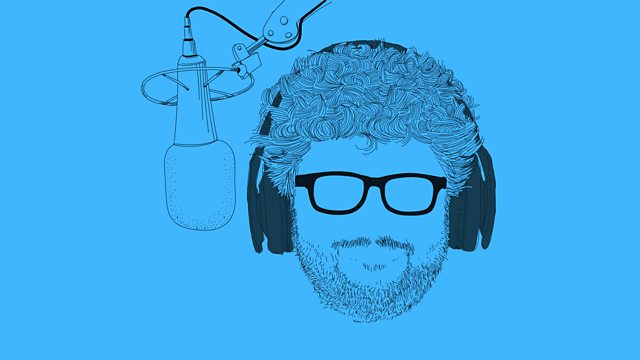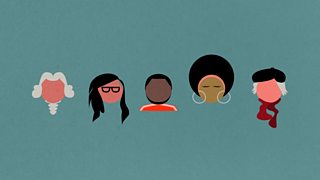HIPP to Be Square
Historically Informed Performance Practice, or HIPP: what is it and why has it become so prevalent in today's music-making?
Tom Service dips a toe into the choppy waters of Historically Informed Performance Practice. HIPP is the latest term for the well-established vogue of recreating the sounds of music from past centuries. But how can we possibly know what music sounded like before it was recorded? Can HIPP ever be more than a hopeful stab in the dark? Like quinoa and farmers' markets, is it merely another facet of fashion and commercial imperative, a mirror which reflects us and our current concerns straight back at ourselves? Or is it a revitalising and constantly evolving force for good, sweeping away years of lazy and complacent tradition, revealing afresh music we thought we knew? Violinist Rachel Podger and chronicler of HIPP Nicholas Kenyon are on hand to help.
David Papp (producer)
Last on
More episodes
Previous
Music Played
-
![]()
Huey Lewis and the News
Hip To Be Square
- Disky.
- n-a.
-
![]()
Johann Sebastian Bach
Brandenburg concerto no. 1 in F major BWV.1046
Performer: Il Giardino Armonico.- warner classics.
- 2564617732.
-
![]()
Ludwig van Beethoven
Symphony no. 8 in F major Op.93
Conductor: Sir Roger Norrington. Performer: London Classical Players.- Virgin Veritas.
- 561375 2.
-
![]()
François Couperin
Pieces de clavecin - ordre no. 6
Performer: Christophe Rousset.- Harmonia Mundi.
- HMX2908717.26.
-
![]()
Henry Purcell
King Arthur, or The British worthy Z.628
Performer: Alison Balsom. Performer: Trevor Pinnock. Performer: English Concert Orchestra.- EMI.
- EMI 2DBF466C.
-
![]()
Antonio Vivaldi
Concerto in F minor RV.297, Op.8`4 (L'Inverno) for violin and orchestra
Performer: Francesca Vicari. Performer: Rinaldo Alessandrini. Performer: Concerto Italiano.- naive.
- OP30363.
-
![]()
Johann Sebastian Bach
Sonata no. 2 in A minor BWV.1003 for violin solo
Performer: Rachel Podger.- Channel Classics.
- CCS SEL2498.
-
![]()
Antonio Vivaldi
Concerto in D major RV.208 (Il Grosso Mogul) for violin and orchestra
Performer: Rachel Podger. Performer: Brecon Baroque.- Channel Classics.
- CCSSA40318.
-
![]()
Wolfgang Amadeus Mozart
Symphony no. 40 in G minor K.550
Conductor: Christopher Hogwood. Performer: Academy of Ancient Music.- Decca.
- 4101972.
-
![]()
Wolfgang Amadeus Mozart
Symphony no. 40 in G minor K.550
Conductor: Herbert von Karajan. Performer: Berlin Philharmonic Orchestra.- Warner.
- 2564633627.
-
![]()
Ludwig van Beethoven
Symphony no. 2 in D major Op.36
Performer: Nikolaus Harnoncourt. Performer: Chamber Orchestra of Europe.- Teldec.
- 0927497682.
-
![]()
Johann Sebastian Bach
Mass in B minor BWV.232
Conductor: Herbert von Karajan. Performer: Wiener Singverein. Performer: Philharmonia Orchestra.- WC.
- 5868382.
-
![]()
Johann Sebastian Bach
Mass in B minor BWV.232
Conductor: Andrew Parrott. Performer: David Thomas. Performer: Emily Van Evera. Performer: Emma Kirkby. Performer: Panajotis N. Iconomou. Performer: Rogers Covey‐Crump. Performer: Taverner Consort.- ERATO.
- 5619982.
Broadcasts
- Sun 30 Aug 2020 17:00�鶹�� Radio 3
- Fri 4 Sep 2020 16:30�鶹�� Radio 3
- Sun 29 Aug 2021 17:00�鶹�� Radio 3
- Fri 3 Sep 2021 16:30�鶹�� Radio 3
Why do we call it 'classical' music?
Tom Service poses a very simple question (with a not-so-simple answer).
Six of the world's most extreme voices
From babies to Mongolian throat singers: whose voice is the most extreme of all?
How did the number 12 revolutionise music?
Why are we all addicted to bass?
Watch the animations
Join Tom Service on a musical journey through beginnings, repetition and bass lines.
When does noise become music?
We like to think we can separate “noise” from “music”, but is it that simple?
Podcast
-
![]()
The Listening Service
An odyssey through the musical universe, presented by Tom Service





